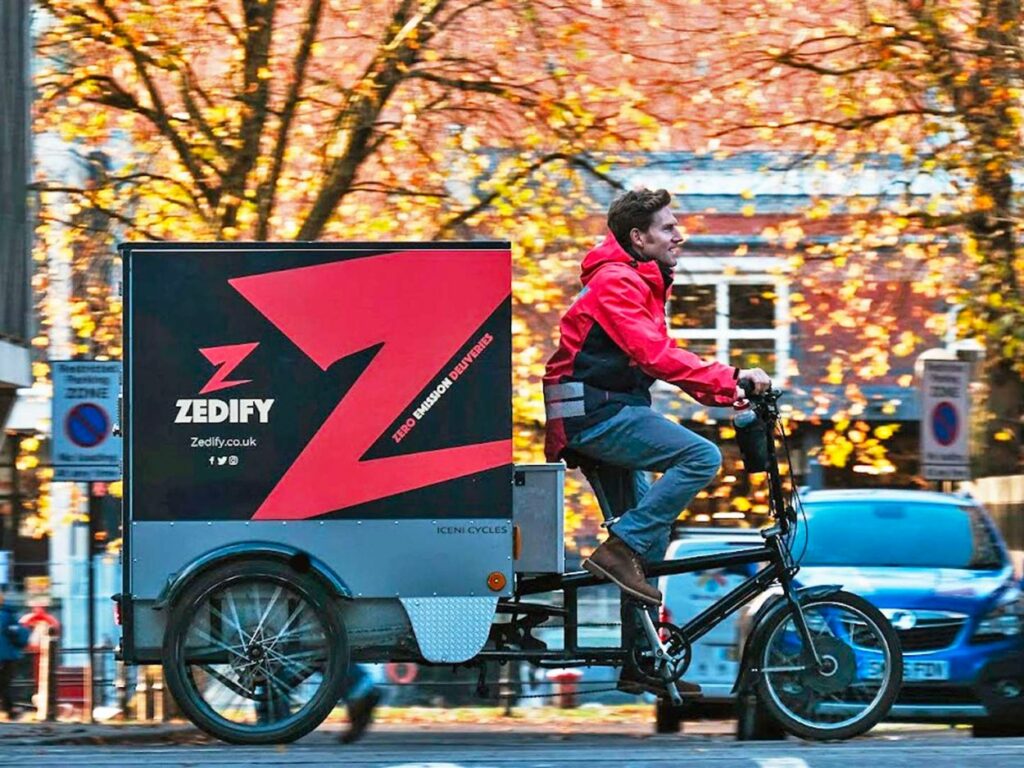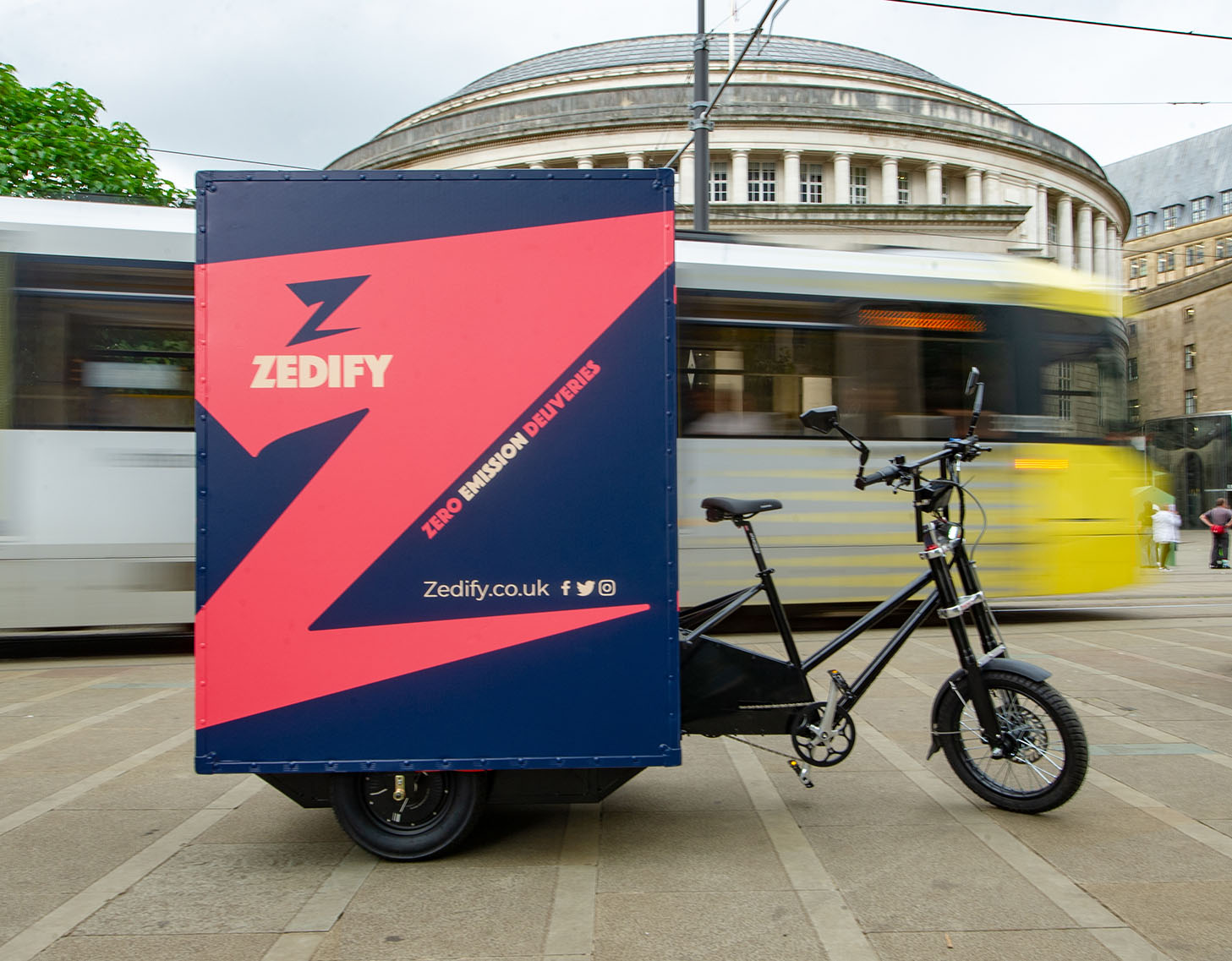
Impactisourcorepurpose
Trusted to deliver for
Howwe’redifferent
Zedify’s cargo bike deliveries offer a unique, environmentally conscious alternative to traditional last mile carrier services. Unlike standard deliveries, which often rely on gas-guzzling vans and contribute to traffic congestion and pollution; Zedify’s cargo bikes are emission-free at the tailpipe and always will be! They’re also light, less carbon intensive to manufacture, and superbly suited to navigate busy urban areas with ease. This perfect combination reduces costs and even saves time as cargo bike deliveries are up to 60% faster in cities than vans.
Our cargo bikes save...
over 80% carbon
ConsolidationOfparcels
We’re not just about the cargo bikes. Zedify has redesigned the whole last mile model: from distribution centre right up to your customer’s doorstep. Big HGVs and vans no longer need to be used in urban settings with this method. That’s because parcels headed from retailers’ warehouses are dropped at our edge-of-city hubs, consolidated with other parcels headed for similar neighbourhoods, and then remoded to our super low-carbon cargo bikes. With hubs that are nearer to end destinations, there’s less stem mileage, more tightly packed routes and, with this efficiency, comes amazing cost and emissions savings.
Whywegetoutofbedeverymorning
We didn’t set up Zedify to be just another tech-driven delivery company: we want to bring about real change for our cities. The fight for clean air, punishing traffic congestion, the explosion of ecommerce and net zero sustainability goals, these important issues increasingly intersect. The result? A tricky urban landscape which demands a drastic rethink for the way that urban deliveries are done.
With scientists now linking air pollution to chronic disease and thousands of early deaths in the UK, and with the climate crisis worsening as greenhouse gas emissions continuing to rise, there has never been a better time to find out more about our work and join the real sustainable delivery revolution.

Anoteongreenwashing
When it comes to tackling the climate crisis, we’re strong believers that you can’t just offset your way out.
Whilst offsetting can be a useful tool for neutralising unavoidable residual emissions, it shouldn’t be used as a first port of call. Planting a tree is a great thing to do, but the carbon and air pollution from a diesel van delivery has already caused damage to the climate and people’s health by the time the shovel hits the ground.
Secondly, the price per assumed tonne of CO2e is way too low, meaning that businesses can opt for cheap offsets without doing the real work to make meaningful changes to their business. This is all aside from the effect of NOX and particulates on human health and the urban environment. Offsetting schemes may eventually cancel out or avoid some emissions or remove carbon out of the atmosphere somewhere, but their reliability, credibility and efficiency are highly disputed.
We believe that the only way to make a difference in a truly sustainable way is to stop the carbon (and other pollution) from entering the atmosphere in the first place.
Innovatingforsustainabilitygains
To allow us to provide the best service in terms of reliability and sustainable impact, we’ve made our own pedal powered vehicles: The Gtrikes.
Across our fleet, we use a wide range of 2-wheeled, 3-wheeled and 4-wheeled cargo bikes as well as a small number of electric vans. The vans allow us to deliver some larger freight as well us supporting our middle mile network and inter-hub trunking. With everything we’ve learnt about what it takes to provide an efficient reliable cargo bike operation, our own Gtrikes allow us to take control of our operations to a greater extent than ever before.
- Lower production costs translate into the pricing of our services
- Unique chainless drive for reduced servicing: keeping more bikes on the road for our clients
- Batteries re-engineered from decommissioned cars - saved from landfill


